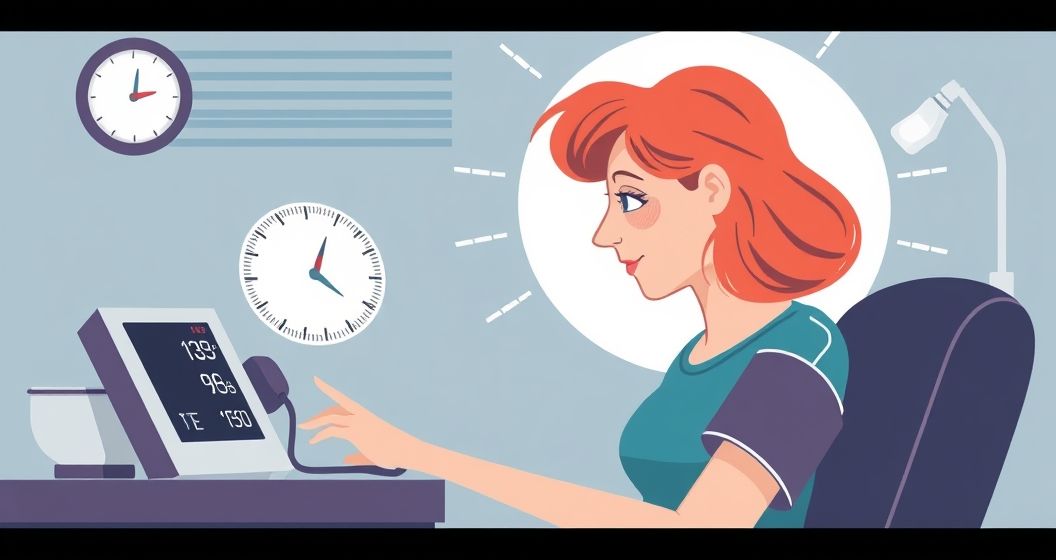high blood pressure dizziness: Understanding Your Blood Pressure Reading
Blood pressure is measured in two numbers: systolic (the top number) and diastolic (the bottom number). The systolic pressure represents the pressure in your arteries when your heart beats, while the diastolic pressure reflects the pressure when your heart rests between beats. A reading of 133/90 mmHg suggests that your blood pressure is elevated. While not yet classified as Stage 1 hypertension (140/90 mmHg or higher), it’s a warning sign.
Why Dizziness Occurs with High Blood Pressure
Dizziness associated with high blood pressure can stem from several factors. Reduced blood flow to the brain, a common consequence of hypertension, can cause lightheadedness, vertigo, or fainting. Additionally, underlying conditions that contribute to high blood pressure, such as dehydration or heart problems, can also manifest as dizziness.
When to Seek Immediate Medical Attention
While a single reading of 133/90 mmHg might not require immediate emergency care, the persistent dizziness warrants prompt attention. You should seek immediate medical help if you experience: * **Sudden, severe dizziness or lightheadedness.** * **Difficulty breathing or chest pain.** * **Loss of consciousness.** * **Severe headache.** * **Numbness or weakness in any part of your body.** * **Changes in vision.** These symptoms could indicate a more serious underlying condition requiring immediate treatment.
What to Do if You Have High Blood Pressure and Dizziness
If you’ve experienced persistent dizziness alongside a blood pressure reading of 133/90 mmHg, schedule an appointment with your doctor as soon as possible. They can perform a thorough examination, order further tests (such as blood tests and EKG), and determine the underlying cause of your symptoms. They can also advise on lifestyle changes and, if necessary, prescribe medication to manage your blood pressure.
Lifestyle Changes to Lower Blood Pressure
Many lifestyle modifications can help lower your blood pressure and reduce the risk of complications. These include: * **Adopting a healthy diet:** Focus on fruits, vegetables, whole grains, and lean proteins. Reduce your intake of sodium, saturated fats, and trans fats. * **Regular exercise:** Aim for at least 30 minutes of moderate-intensity exercise most days of the week. * **Weight management:** If you’re overweight or obese, losing even a small amount of weight can significantly improve your blood pressure. * **Stress management:** Chronic stress can elevate blood pressure. Practice relaxation techniques such as yoga, meditation, or deep breathing. * **Limiting alcohol consumption:** Excessive alcohol intake can raise blood pressure. Managing high blood pressure is crucial for preventing serious health problems, including stroke, heart attack, and kidney disease. Don’t ignore the warning signs. Consult your doctor promptly to ensure your health and well-being. Early intervention significantly improves the chances of successful management and reduces the risk of long-term complications associated with high blood pressure and dizziness.


